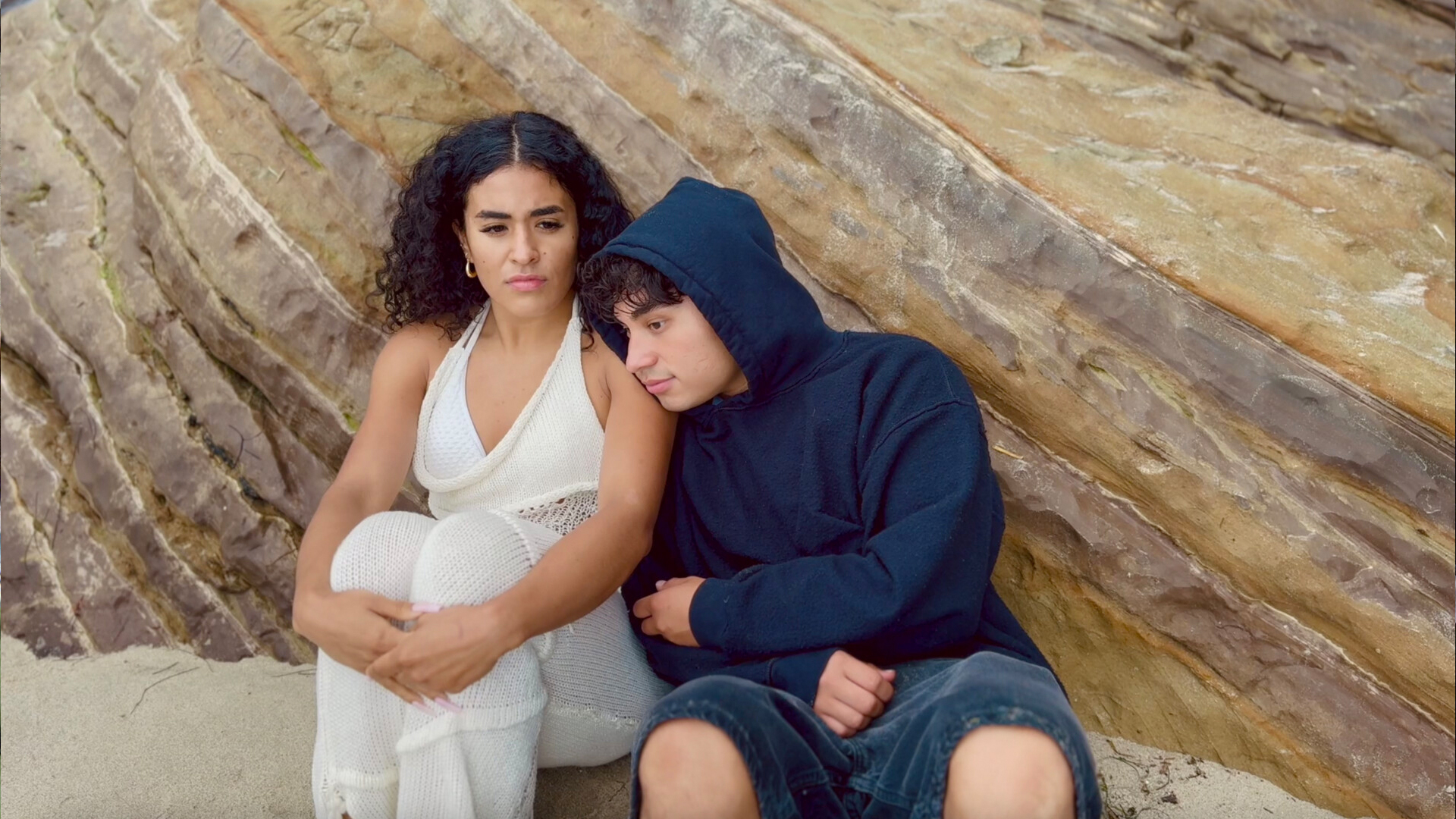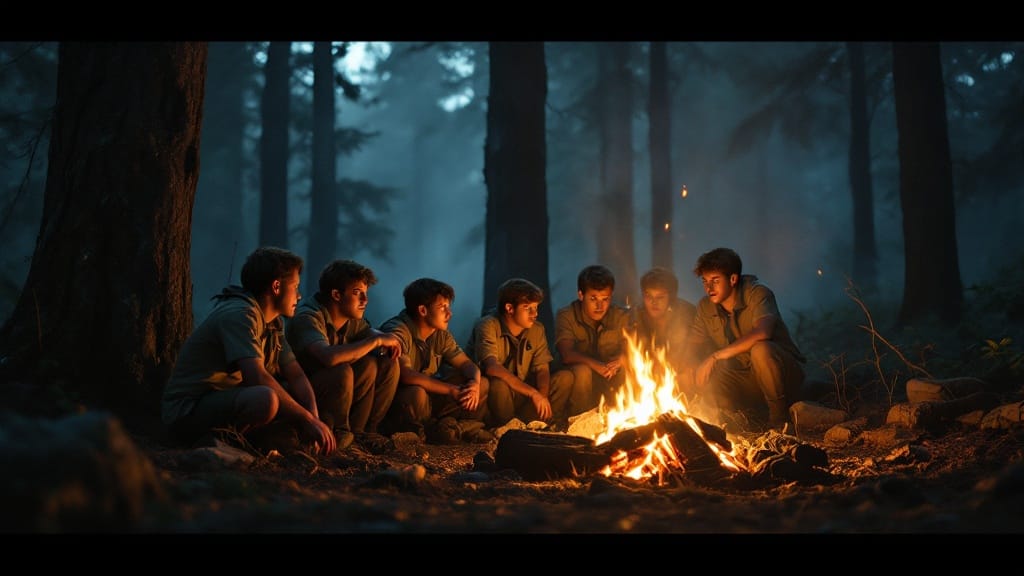Drama
Mucho Mucho, Siempre Siempre

Directed by Samuel Torres
Warning – This review may contain spoilers
Mucho Mucho, Siempre Siempre is a heartfelt drama that explores the deep connection between siblings, even when one has passed away. Directed by Samuel Torres, the film takes us on a journey as Esperanza (played by Stephani Sosa) reunites with her deceased brother, Axel (portrayed by Torres himself), in a yearly tradition that defies the boundaries of life and death. The story revolves around their magical meeting on the beach during the summer solstice, a bittersweet ritual where they catch up on the lives they’ve led—one in the world of the living, the other in the world of the dead.
Right from the start, I was struck by the beautiful cinematography. The clean, crisp visuals and vibrant colors, especially during the beach scenes, pulled me into the emotional landscape of the film. It’s clear that Torres aimed to create a serene yet poignant environment, and the choice to shoot at a beach perfectly complements the film’s themes of reflection, longing, and the passage of time. The sound design, especially the natural sound of waves, adds to this atmosphere, and I appreciated the minimalist approach to music, which gave the dialogue more space to breathe. However, there were a few technical missteps, including some unexplained black screens and jump cuts that broke the flow at times, making certain moments feel disjointed.
The premise of siblings reuniting across the boundary of death is emotionally rich, but I felt like the film didn’t fully tap into the potential of its concept. The emotional core of the movie—the bond between Esperanza and Axel—is certainly relatable to anyone who has experienced the loss of a loved one. Yet, the dialogue between the two characters felt surprisingly flat. With such limited time together, I expected deeper conversations that would reveal more about their past, their regrets, or even their hopes. Instead, much of their interaction felt like small talk, which ultimately left me wanting more. There’s a sense that the filmmakers were trying to capture the simple beauty of their connection, but this simplicity sometimes comes across as underdeveloped.
One of the aspects that puzzled me was the shift between English and Spanish during their conversation. There’s no clear reason given for why this happens, and while the language switch itself isn’t an issue, I would have liked the director to commit to one language or provide a more meaningful reason for the change. It was a minor distraction in an otherwise intimate exchange.
As for the beach setting, while visually stunning, it felt underutilized in terms of storytelling. There’s a sense of mystery surrounding Axel’s reappearance—he doesn’t emerge from the water, nor do we get any hints as to how he returns, leaving a gap in the narrative logic. I couldn’t help but feel that the beach, which even seemed to have a cave in the background, could have been used more creatively to enhance the mystical aspects of the siblings’ reunion. Instead, the film spends a lot of time on Esperanza’s journey to the beach, which, though beautifully shot, didn’t add much to the overall story. That time might have been better spent exploring the emotional and supernatural aspects of their connection.
While Mucho Mucho, Siempre Siempre succeeds in delivering a visually appealing and thematically tender story, it misses the opportunity to dive deeper into the complexities of grief and the idea of reconnecting with loved ones who have passed on. I found myself wishing for more substance in the dialogue and a stronger sense of purpose in the characters’ brief reunion. Audiences who have dealt with loss will likely find solace in the film’s message about the enduring spirit of family, but for me, the film felt a bit underdeveloped.
That being said, Torres’ direction shows promise, and I can see the passion behind the project. The film’s themes of love, loss, and familial bonds are universally resonant, and while it may not have fully hit the emotional depth I hoped for, Mucho Mucho, Siempre Siempre is still a touching short that will find an audience with those seeking quiet, reflective storytelling.
Comedy
Troop 458

WARNING! This review contains SPOILERS!
Troop 458, written by Trevor Allen, captures the often daunting, yet transformative, experience of being the new kid in a world full of unknowns. We follow Sidney, an anxious boy thrown into his first Boy Scouts campout, where he faces both the perils of acceptance and the strangeness of his eccentric scout leader. As spooky campfire tales start to weave into reality, Sidney is forced to confront his fears head-on, finding moments of humor, adventure, and unexpected camaraderie along the way.
I like the concept of Troop 458 because it blends coming-of-age themes with a playful sense of adventure, all wrapped in an atmosphere tinged with just the right amount of mystery. Allen’s writing brings to life a cast of memorable characters, especially through Sidney’s journey of growth. The tension between humor and fear feels authentic to the Boy Scouts’ setting, and it captures the real challenges kids face when trying to fit in.
What resonated with me most was the screenplay’s exploration of courage—not just in facing mythical dangers but in embracing who you are, quirks and all. Some aspects could benefit from a clearer focus on character motivations and tighter pacing to keep the momentum strong, particularly during scenes that blur the line between myth and reality.
The dialogue is great in many places, offering humor that feels natural for a group of young scouts. There were moments where I felt the conversations could be a bit sharper or more distinct to heighten the comedic or emotional impact. Character development is a strong suit, with Sidney’s evolution being both relatable and satisfying, but secondary characters could have a bit more depth to elevate the ensemble.
Allen’s Troop 458 is polished, with solid grammar, spelling, and formatting that adhere to professional standards. The structure is clean and makes for an easy read, setting up scenes that are visually compelling.
Troop 458 delivers an enjoyable mix of humor, heart, and a touch of the supernatural, leaving me eager to see how it might come to life on screen.
Drama
Ellie

WARNING! This review contains SPOILERS!
Directed by Marcus Mejia
Ellie is a refreshing experience that pulled me right into the world of a young, shy man navigating a work meeting while secretly yearning for a bit of magic in his everyday life. We’re taken through his imaginative, musical daydream—a beautiful escape from reality that reveals his true desires. I loved how the film peeled back layers of his personality without a single word of dialogue. Instead, the music carried the narrative, and surprisingly, it worked so well.
Marcus Mejia did an excellent job blending dramedy elements to keep the film engaging. The moments of humor and more emotional beats make the film feel well-rounded. Mejia’s choice to swap dialogue for music was a bold move, and it paid off. I could feel the character’s internal struggles and hopes as the music brought out emotions words couldn’t.
The lighting felt intimate, almost like it was giving us a window into the protagonist’s soul, and the cinematography perfectly captured the whimsical tone of his daydreams. I noticed how smoothly the editing transitioned between reality and fantasy, which made the story’s pacing feel just right. The sound design was on point, with every beat of music syncing beautifully with the character’s emotional highs and lows.
I loved when the protagonist’s daydream overlapped with reality, creating this seamless blend that felt so relatable. I admired how it portrayed the quiet, unspoken dreams we all carry. It was a reminder of the power of our inner worlds and how much magic lies just beneath the surface of our everyday lives.
Ellie left a gentle yet lasting impression. It’s a unique, heartfelt short film that shows how creative risks can pay off. Ellie is a memorable journey that’s definitely worth the watch.
Drama
Finding Acceptance

Directed by Andrew DeBennett
WARNING! This review contains spoilers.
Watching “Finding Acceptance” was an experience that brought me back to those anti-bullying films we’d see in school assemblies. The story follows Mary, a new student in a wheelchair, navigating the often-tough world of school friendships. Initially, she faces teasing from her peers but finds a genuine friend in Liz, who even manages to extend kindness to Mary’s bully, Max. The message is straightforward and clear: acceptance and empathy matter.
I could see what the director was aiming for—Andrew DeBennett notes that the film was both a joy to create and a personal project. The heart of the story shines through, with Kaylah Pollock (Mary) and Laney Hansen (Liz) bringing warmth to their roles. Their connection feels genuine, even if the overall story feels a bit too familiar.
Technically, the film could have used some fine-tuning. The sound mix was rough, with the music often drowning out dialogue. The editing also felt choppy, making it harder to stay immersed in the story. The dialogue leaned into clichés—phrases like “loser” felt outdated and took away from the realism. The cinematography, however, was a bright spot, creating a warm, inviting feel that suited the film’s positive message.
I felt like the story could’ve benefited from more depth. The bullying that Mary faces is minimal, making her eventual friendships feel somewhat predictable. For younger audiences, this simplicity might be engaging and easy to digest, but it misses the chance to delve into the more complex aspects of acceptance.
In the end, “Finding Acceptance” delivers a positive, albeit simple, message. While it didn’t connect with me on a deeper level, I can see it being a useful film for educational settings, especially for younger viewers learning about kindness and friendship.










